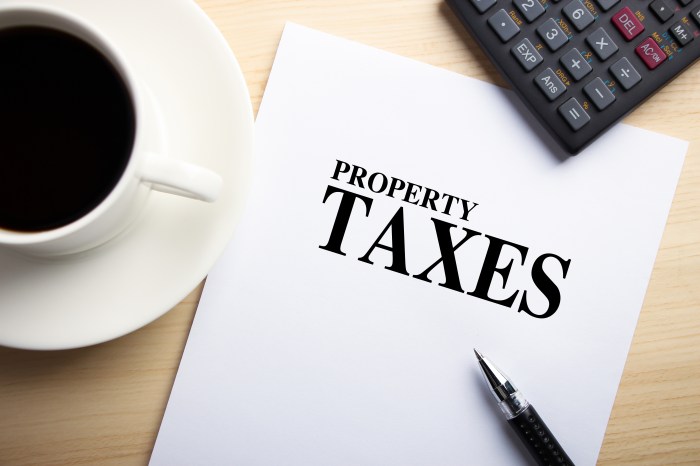Who’s responsible for disclosing the property taxes to the buyer – In the realm of real estate transactions, the disclosure of property taxes is a crucial aspect that impacts both buyers and sellers. Understanding who bears the responsibility for providing this information is essential to ensure a transparent and compliant process.
This article delves into the legal obligations, standard practices, and consequences surrounding property tax disclosure, empowering buyers with the knowledge they need to make informed decisions.
The disclosure of property taxes plays a significant role in the real estate market, affecting buyers’ financial planning and decision-making. Sellers have a legal obligation to provide accurate and timely information about property taxes to potential buyers, ensuring transparency and fairness in the transaction.
Legal Obligations for Property Tax Disclosure

Real estate transactions involve various legal responsibilities, including the disclosure of property taxes. Sellers and buyers have specific obligations to ensure that accurate tax information is shared during the transaction process.
In many jurisdictions, specific laws mandate the disclosure of property taxes. For instance, in the United States, the Real Estate Settlement Procedures Act (RESPA) requires sellers to provide buyers with a Good Faith Estimate (GFE) that includes an estimate of annual property taxes.
Failure to disclose property taxes can have significant consequences. Buyers may be able to challenge the transaction or seek compensation for any financial losses incurred due to the omission of tax information.
Standard Practices for Property Tax Disclosure

Customary methods for disclosing property taxes to buyers include:
- Written notice: Sellers typically provide buyers with a written disclosure statement that includes property tax information.
- Online portals: Some jurisdictions have established online portals where buyers can access property tax records.
- Real estate professionals: Real estate agents and brokers often assist buyers in obtaining property tax information from relevant sources.
Best practices for presenting tax information clearly and accurately include:
- Using a standardized format
- Providing a breakdown of tax components (e.g., county, school, special assessments)
- Highlighting any exemptions or deductions that may apply
Timing and Delivery of Property Tax Disclosure
The appropriate time to disclose property taxes to buyers is typically during the due diligence period of the transaction.
Tax disclosure information can be delivered through various methods, including:
- Written notice (e.g., GFE, disclosure statement)
- Online portals
- Email or electronic communication
It is important to provide timely and accessible tax information to buyers so that they can make informed decisions about the property purchase.
Consequences of Misrepresentation or Omission: Who’s Responsible For Disclosing The Property Taxes To The Buyer

Misrepresenting or omitting property tax information can have serious legal and financial consequences.
Buyers who have been misled about property taxes may be able to:
- Challenge the transaction
- Seek compensation for financial losses
- File a complaint with regulatory authorities
In some cases, real estate professionals may also be held liable for inaccurate or incomplete tax disclosure.
Questions and Answers
Who is primarily responsible for disclosing property taxes to buyers?
Sellers have the primary responsibility for disclosing property taxes to buyers.
What are the potential consequences of failing to disclose property taxes?
Failing to disclose property taxes can result in legal and financial consequences, including fines, penalties, and potential legal action from buyers.
When should property taxes be disclosed to buyers?
Property taxes should be disclosed to buyers as early as possible in the transaction process, typically during the due diligence phase.